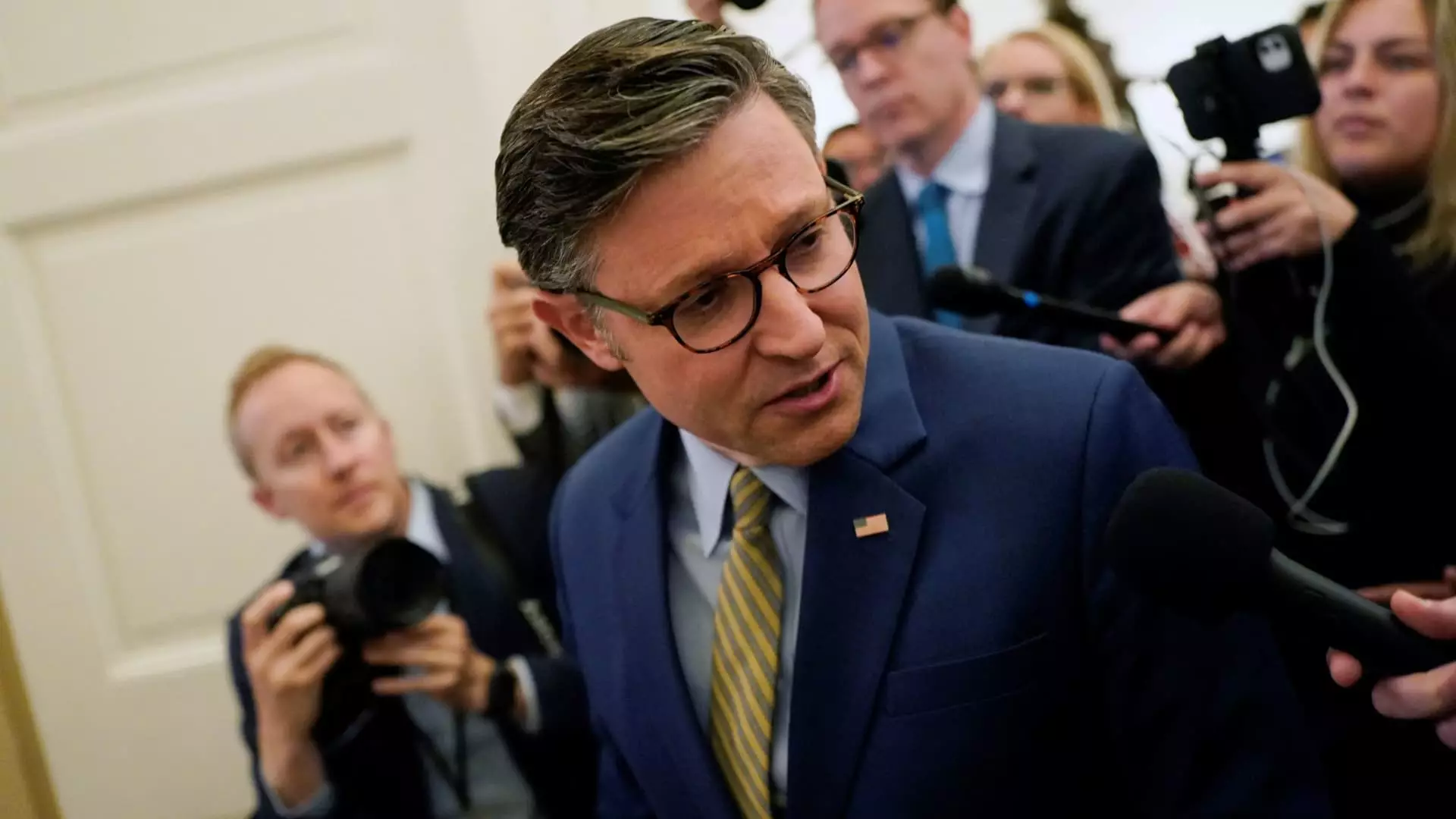In a politically charged atmosphere, House Speaker Mike Johnson’s proclamations about the passage of what he refers to as the “big, beautiful bill” raise significant eyebrows. He claims it to be the most substantial cut in government spending in three decades. However, that assertion masks the troubling reality behind such sweeping claims. A recent Congressional Budget Office analysis sounds alarm bells, suggesting that the tax provisions embedded in this bill could inflate the federal deficit by a staggering $3.8 trillion over the next ten years. Dare we dismiss this analysis as merely “alarmist”?
Republican lawmakers, particularly those who usually tout fiscal conservatism like Sen. Ron Johnson from Wisconsin, seem to be losing their way. Faced with the real possibility that this legislation could exacerbate an already precarious fiscal situation, they are visibly hesitant. Yet, Speaker Johnson refuses to acknowledge these legitimate concerns, labeling the budget office’s forecasts as “dramatically overstated.” How can a political leader disregard an independent assessment from a nonpartisan body? This cavalier disregard for financial realities not only undermines the integrity of the legislative process but also risks economic stability.
The Pie-in-the-Sky Promises
Johnson’s promises of job creation and wage increases rest on optimistic assumptions typical of supply-side economics. He posits that creating tax breaks for the wealthy and large corporations will, by some magical trickle-down effect, benefit the working class. This argument has been thoroughly debunked. The allure of job creators and entrepreneurs thriving in a low-tax environment is appealing, but it ignores the historical record showing little correlation between tax cuts for the rich and widespread wage growth.
Moreover, the insistence that increased onshore manufacturing will occur—while ignoring the current global economic conditions—highlights an unsettling detachment from reality. Are we to believe that businesses will suddenly flock to the U.S. simply because additional tax breaks are available? It’s reminiscent of a magician’s act that relies more on illusion than practice.
The Senate’s Pragmatic Challenge
As the bill prepares to maneuver through the Senate, where skepticism looms large even among Republican ranks, Speaker Johnson finds himself in a precarious position. He has urged the Senate to stick to the original document, arguing for minimal modifications. In doing so, he seeks to maintain a fragile consensus within a party that is rapidly becoming a house divided. The chance of losing votes in a closely controlled majority only intensifies with any changes, as differing factions look out for their interests rather than the national fiscal health.
The reality of governing demands a balance of ideals and practicality. The current maneuvering feels dangerously one-sided, prioritizing party unity over sound economic policy. Johnson’s approach almost seems to gloss over the profound implications this budget will have on the average citizen. The notion that a delicate equilibrium should be maintained, even to the detriment of responsible governance, is indeed a cruel façade.
Ultimately, the “big, beautiful bill” is more than just legislative jargon—it is a stark reminder of the political landscape where fiscal responsibility takes a back seat to rhetoric and partisan objectives.

Leave a Reply